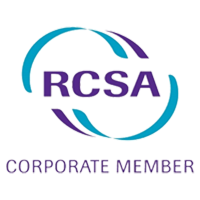So, you’ve seen your ideal role advertised on a job board. You eagerly hit ‘apply’ and attach your generic “JOHN SMITH CV 2017” and cross your fingers. Little do you know, tens of other applicants have also seen their ‘dream role’ and done the same. However these applicants have done it a little differently, their CV is succinct, tailored to the job they have applied to, and punchy. Hiring managers rarely spend more than 10 seconds reading a CV before deciding whether to put it in the ‘yes’ (interview to be arranged) or ‘no’ pile. Follow these easy steps to make sure your CV doesn’t end up in the latter…
- Don’t get too personal
Employers don’t need to know your marital status, religious preference or other unrelated personal information. This may have been the norm in the past, however including these details should no longer be of relevance to your hiring manager and could lead to discrimination, which is illegal. Including details such as your full name and contact details (a full address is not necessary) is mandatory – make sure your hiring manager can call you to discuss your application!
- Don’t include your hobbies
In most cases, this is irrelevant, and takes up much needed valuable space on your CV. The exception is if your hobbies include relevant workplace or social achievements, qualifications or awards that enhance your employability or demonstrate positive personality traits that may be a good fit to the organisation.
- Be concise and strict with word space
While too long, wordy paragraphs are an obvious no-no, long bulleted lists also put you at a disadvantage. Hiring managers will often gloss over these sections, which may make them miss important information regarding you suitability for the role. Ensure you include duties you currently do that are relevant to the job you are applying for, but don’t include obvious, irrelevant points (e.g. “general ad-hoc administration duties”).
- More than 15 years’ experience
Make sure your CV includes work experience from around 2000 onwards. Any work experience prior to the last 15 years is probably no longer relevant, and starts to lose the hiring manager’s interest as they read through your CV. You do not need to include qualifications or education from longer than 15 years ago either.
- Formatting, Formatting, Formatting!
This is perhaps the most important part of your CV as your prospective employer is essentially reading an example of your work. If you don’t have correct grammar, spelling, or inconsistent formatting, your application may look careless, and reflects on your attention to detail and work approach. Make sure your CV is easily read and highlights your qualifications and relevant experience.



